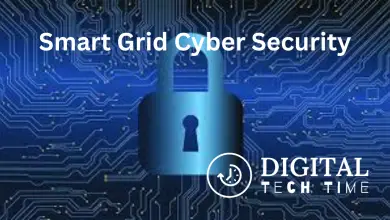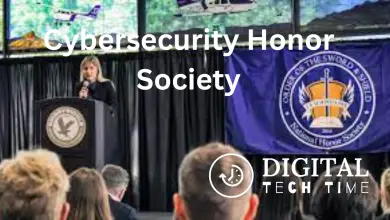Cyber Security Masters Europe: Top Programs and Requirements

Cybersecurity is an increasingly important field in the world of technology. With the rise of cyber threats and attacks, there is a growing need for professionals who can protect sensitive information and prevent unauthorized access. Pursuing a master’s degree in Cyber Security in Europe can provide individuals with the knowledge and skills necessary to excel in this field.
Understanding Cyber Security is essential for anyone looking to pursue a career in this field. It involves protecting electronic devices, networks, and sensitive information from unauthorized access, theft, or damage. Cyber Security professionals are responsible for identifying potential threats and vulnerabilities and implementing measures to prevent them. With the increasing dependence on technology in all aspects of life, Cyber Security has become a critical field, and a master’s degree in this subject can provide individuals with the skills and knowledge necessary to succeed.
- Pursuing a Master’s degree in Cyber Security in Europe can provide individuals with the necessary knowledge and skills to excel in this field.
- Cyber Security involves protecting electronic devices, networks, and sensitive information from unauthorized access, theft, or damage.
- With the increasing dependence on technology in all aspects of life, Cyber Security has become a critical field, and a master’s degree in this subject can provide individuals with the skills and knowledge necessary to succeed.
Key Takeaways
Understanding Cyber Security
Cybersecurity refers to the practice of protecting computer systems, networks, and sensitive information from unauthorized access, theft, damage, or disruption. With the increasing reliance on technology in various sectors of society, the need for cybersecurity has become more critical than ever. Cyber threats can come from different sources, such as hackers, viruses, malware, phishing, and social engineering.
To combat these threats, cybersecurity professionals use a combination of technical, administrative, and physical controls to safeguard digital assets. These controls include firewalls, antivirus software, encryption, access controls, security policies, and training. Cybersecurity is a constantly evolving field, and professionals need to stay up-to-date with the latest threats, technologies, and best practices.
A Cybersecurity Master’s degree program provides students with a deep understanding of cybersecurity concepts, tools, and techniques. Students learn how to identify, assess, and mitigate cyber risks, as well as how to design and implement security solutions. They also gain hands-on experience through practical exercises, simulations, and projects.
Some of the topics covered in a Cybersecurity Master’s program include:
- Cryptography and Network Security
- Cyber Threat Intelligence
- Digital Forensics
- Incident Response and Disaster Recovery
- Penetration Testing and Ethical Hacking
- Risk Management and Compliance
- Secure Software Development
- Security Operations and Management
Graduates of a Cybersecurity Master’s program can pursue various career paths, such as cybersecurity analyst, security engineer, information security manager, or chief information security officer. They can work in different industries, including finance, healthcare, government, and technology.
Importance of a Masters in Cyber Security

Cyber threats are becoming more complex and frequent, and organizations are struggling to keep up with the evolving threat landscape. A Masters in Cyber Security is becoming increasingly important for professionals who want to stay ahead of the curve and help organizations protect themselves from cyber threats.
With a Masters in Cyber Security, students gain a deep understanding of the technical aspects of cyber security, including cryptography, software and hardware security, systems security, and privacy. They also learn how to develop secure systems and protect organizations from cybercrime.
In addition to technical knowledge, a Masters in Cyber Security also provides students with critical thinking and problem-solving skills. They learn how to analyze and assess cyber threats, develop effective security strategies, and implement security measures to protect organizations.
Having a Masters in Cyber Security can also open up a wide range of career opportunities. Graduates can work in a variety of roles, including cyber security analyst, information security analyst, security consultant, and security architect. They can work in a variety of industries, including healthcare, finance, government, and technology.
Overall, a Masters in Cyber Security is an essential degree for professionals who want to stay ahead of the curve in the fast-paced world of cyber security. It provides students with the knowledge, skills, and experience they need to protect organizations from cyber threats and advance their careers in the field.
Top Universities in Europe for Cyber Security Masters
When it comes to pursuing a Cyber Security Master’s degree in Europe, there are several universities that stand out for their exceptional academic programs, research facilities, and faculty. In this section, we will take a closer look at three of the top universities in Europe for Cyber Security Masters.
University of Oxford
The University of Oxford is one of the most prestigious universities in the world, and its Cyber Security Masters program is no exception. The program is designed to provide students with a comprehensive understanding of the technical, legal, and ethical aspects of Cyber Security. Students will have access to state-of-the-art research facilities and will be taught by leading experts in the field. The program also offers a range of elective courses, allowing students to tailor their education to their specific interests and career goals.
Imperial College London
Imperial College London is another top university in Europe for Cyber Security Masters. The program is designed to provide students with a strong foundation in the technical aspects of Cyber Security, as well as the legal and ethical considerations surrounding the field. Students will have access to cutting-edge research facilities and will be taught by world-renowned experts in the field. The program also offers a range of elective courses, allowing students to specialize in areas such as cryptography, network security, and cybercrime.
ETH Zurich
ETH Zurich is a leading university in Switzerland and is renowned for its exceptional academic programs in science and technology. The university’s Cyber Security Masters program is designed to provide students with a deep understanding of the technical, legal, and ethical aspects of Cyber Security. Students will have access to state-of-the-art research facilities and will be taught by leading experts in the field. The program also offers a range of elective courses, allowing students to tailor their education to their specific interests and career goals.
Overall, these three universities are among the best in Europe for Cyber Security Masters. Students who choose to pursue their education at one of these institutions can be confident that they will receive a world-class education and be well-prepared for a successful career in Cyber Security.
Course Structure and Curriculum
The Cyber Security Masters programs in Europe are designed to provide students with a comprehensive understanding of the field of cybersecurity. The course structure and curriculum of each program may vary slightly, but they all typically include a mix of core and elective modules.
Core Modules
The core modules of these programs are designed to provide students with a solid foundation in the fundamental concepts of cybersecurity. These modules cover topics such as cyber threats, cryptography, network security, and cybercrime. They also provide students with an understanding of the legal and ethical issues surrounding cybersecurity.
Elective Modules
The elective modules of these programs allow students to specialize in specific areas of cybersecurity that align with their interests and career goals. These modules cover topics such as digital forensics, cyber intelligence, and secure software development. Students can also choose to take modules that focus on specific industries, such as healthcare or finance.
In addition to the core and elective modules, some programs also require students to complete a research project or dissertation. This project allows students to apply the knowledge and skills they have acquired throughout the program to a real-world problem in the field of cybersecurity.
Overall, the course structure and curriculum of Cyber Security Masters programs in Europe are designed to provide students with a comprehensive understanding of the field of cybersecurity. By combining core and elective modules with a research project, students are able to develop a deep understanding of the field and gain the skills necessary to pursue a successful career in cybersecurity.
Career Opportunities After Masters in Cyber Security
Graduates with a Master’s degree in Cyber Security can pursue a variety of career paths in the field of information security. Here are some of the most common job roles for graduates of a Cyber Security Master’s program in Europe.
Information Security Analyst
Information Security Analysts are responsible for monitoring computer networks and systems for security breaches and investigating violations when they occur. They also develop and implement security measures to protect an organization’s computer networks and systems. With a Master’s degree in Cyber Security, graduates can qualify for senior positions in this field.
Cyber Security Consultant
Cyber Security Consultants help organizations to improve their security posture by identifying vulnerabilities and developing strategies to mitigate them. They also provide guidance and training to staff members on how to prevent cyber attacks. Cyber Security Consultants can work for consulting firms or as independent contractors.
Security Architect
Security Architects design and implement security systems to protect an organization’s computer networks and systems. They also develop policies and procedures to ensure compliance with security regulations and standards. A Master’s degree in Cyber Security can prepare graduates for senior positions in this field.
Overall, a Master’s degree in Cyber Security can lead to a variety of exciting and challenging career opportunities in the field of information security. Graduates can work in a variety of industries, including government, healthcare, finance, and technology.
Scholarship Opportunities in Europe for Cyber Security Masters

Pursuing a Master’s degree in Cyber Security in Europe can be a great investment in a student’s future. However, the cost of tuition fees and living expenses can be a major barrier for many students. Fortunately, there are several scholarship opportunities available for international students who wish to study Cyber Security in Europe.
One such opportunity is the Erasmus Mundus Joint Master Degrees (EMJMDs) program. This program is funded by the European Union and provides scholarships to students who wish to pursue a Master’s degree in Cyber Security in Europe. The program offers full scholarships that cover tuition fees, living expenses, and travel costs. The application process is highly competitive, and students are encouraged to apply early.
Another scholarship opportunity for Cyber Security Masters in Europe is the DAAD Scholarship. This scholarship is offered by the German Academic Exchange Service (DAAD) and provides financial support to international students who wish to pursue a Master’s degree in Cyber Security in Germany. The scholarship covers tuition fees, living expenses, and travel costs. The application process is highly competitive, and students are encouraged to apply early.
In addition to these programs, many universities in Europe offer their own scholarship opportunities to international students who wish to pursue a Master’s degree in Cyber Security. For example, KTH Royal Institute of Technology in Sweden offers several scholarship opportunities to international students who wish to pursue a Master’s degree in Cyber Security. These scholarships cover tuition fees and living expenses.
Overall, there are several scholarship opportunities available for international students who wish to pursue a Master’s degree in Cyber Security in Europe. These scholarships can help to reduce the financial burden of pursuing a Master’s degree and make it more accessible to a wider range of students.
Application Process for Cyber Security Masters in Europe
The application process for Cyber Security Masters in Europe can vary depending on the university and program. However, there are some general steps that most applicants will need to follow.
First, applicants will need to research and identify the universities and programs that best fit their interests and qualifications. They should review the program requirements, curriculum, and faculty to ensure that the program aligns with their career goals.
Once the applicant has identified the programs they are interested in, they will need to check the application deadlines and requirements. Most universities will require applicants to submit an online application form, academic transcripts, letters of recommendation, a personal statement, and proof of English proficiency.
It is important for applicants to carefully review the application requirements and ensure that they meet all the criteria before submitting their application. Incomplete or incorrect applications can delay the review process or result in rejection.
Applicants should also be aware of any additional requirements, such as interviews or entrance exams, and prepare accordingly.
Overall, applying for a Cyber Security Master’s program in Europe can be a competitive and rigorous process. However, with careful planning and preparation, applicants can increase their chances of being accepted into their desired program.
Conclusion
In conclusion, pursuing a Cyber Security Master’s degree in Europe is a great way to advance one’s career in the field. With a wide range of universities offering specialized programs, students can choose the one that best suits their interests and career goals.
Some of the top universities offering Cyber Security Master’s degrees in Europe include Arden University UK, Norwegian University of Science and Technology, KTH Royal Institute of Technology, and more. These universities provide students with a solid foundation in Cyber Security, covering topics such as cryptography, ethical hacking, cyber intelligence, and international relations.
Additionally, students can benefit from various scholarship opportunities provided by these universities and other organizations. These scholarships can help cover tuition fees and other expenses, making it easier for students to pursue their education.
Overall, pursuing a Cyber Security Master’s degree in Europe can provide students with the knowledge and skills needed to succeed in this rapidly growing field. With the increasing demand for Cyber Security professionals, graduates can expect to find rewarding career opportunities in various sectors, including finance, healthcare, government, and more.
Frequently Asked Questions
Which universities in Europe offer Cyber Security Master’s degree programs?
There are many universities in Europe that offer Cyber Security Master’s degree programs. Some of the popular universities are the University of the West of England (UWE Bristol), University of Oxford, University of Cambridge, University of Edinburgh, University of Bath, and more.
What are the top-ranked universities for Masters in Cyber Security in Europe?
The top-ranked universities for Masters in Cyber Security in Europe are University of Oxford, University of Cambridge, and University College London (UCL). These universities are known for their excellent research facilities and experienced faculty.
What are the prerequisites for enrolling in a Cyber Security Master’s degree program in Europe?
The prerequisites for enrolling in a Cyber Security Master’s degree program in Europe vary from university to university. However, most universities require a bachelor’s degree in computer science, cybersecurity, or a related field. Some universities also require a minimum GPA and standardized test scores.
Is it worth pursuing a Master’s degree in Cyber Security in Europe?
Yes, it is worth pursuing a Master’s degree in Cyber Security in Europe. The demand for cybersecurity professionals is increasing rapidly, and a Master’s degree in Cyber Security can help you stand out in the job market. Moreover, Europe is home to some of the top-ranked universities in the world, which can provide you with excellent research facilities and experienced faculty.
Which European country offers the most affordable Cyber Security Master’s degree programs?
The cost of Cyber Security Master’s degree programs varies from university to university and country to country. However, some of the most affordable countries for Cyber Security Master’s degree programs in Europe are Germany, France, and Spain.
Are online Cyber Security Master’s degree programs as valuable as on-campus programs?
Online Cyber Security Master’s degree programs can be as valuable as on-campus programs if they are accredited and offered by reputable universities. However, on-campus programs provide students with the opportunity to interact with faculty and peers, participate in research, and gain hands-on experience.





